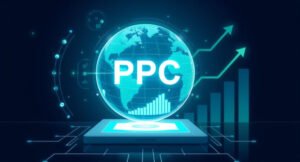- Why High-Quality Leads Matter
- 1. Set laser-focused campaign goals
- 2. Focus on audience targeting
- 3. Optimize with long-tail keywords
- 4. Create persuasive ad copy and landing pages
- 5. Use remarketing for cost-effective campaigns
- 6. Leverage automation and AI
- 7. Test and optimize on an ongoing basis
- Conclusion: Turning a limited budget into big results
- FAQs
In today’s digital ad world, it can be tough to generate high-quality leads on a limited PPC budget. But the right strategies can turn even modest ad spend into remarkable results. This guide gives you steps, examples, and best practices. Use them to optimize your PPC campaigns for most efficiency and ROI.
Why High-Quality Leads Matter
Not all leads are equal. It’s essential to focus on high-quality ones for several reasons.
- Higher Conversion Rates: Quality leads are more likely to turn into paying customers.
- Resource Efficiency: Reduce the time spent on nurturing uninterested prospects.
- Better ROI: Stretch your limited budget further by targeting engaged audiences.
Targeted lead optimization slashes costs and boosts conversions. WordStream found that this approach cut acquisition costs by 20%. It also boosted conversion rates by 25% over generic methods.
1. Set laser-focused campaign goals
Why it’s important
Without clear goals, your PPC campaigns risk wasting clicks on irrelevant actions. Focused objectives ensure that every dollar contributes to tangible results.
Action Plan
- Set SMART Goals: Define objectives that are Specific, Measurable, Achievable, Relevant, and Time-bound. Example: “Generate 50 leads per month with a CPA under $20.”
- Focus on Bottom-Funnel Actions: Focus on actions such as purchases, inquiries, or sign-ups.
- Track conversions with Google Ads. Measure key actions—form fills, purchases. Gain insights to boost campaign performance and ROI.
Case Study
A culinary school partnered with PPCgods to lower its cost-per-acquisition (CPA) to $15. By using smart bidding and conversion tracking, it achieved a CPA of just $12.
2. Focus on audience targeting
Why it’s important
A broad audience often results in irrelevant clicks and wasted budgets. Targeting niche, high-intent audiences delivers better results.
Action Plan
- Granular Targeting: Define your audience by age, location, interests, and behavior.
- Geo-Targeting: Focus ads on regions where your services are in demand. A luxury real estate client targeted wealthy buyers in Zurich and Monaco. They cut costs by 40% and doubled conversions.
- Exclude unqualified audiences: Use negative audience filters to avoid irrelevant clicks.
- Use Remarketing Lists: Retarget users who have before interacted with your website.
3. Optimize with long-tail keywords
Why it’s important
Broad keywords are costly and attract low-quality traffic. Long-tail keywords are longer phrases. They match specific search intents and are cheaper.
Action Plan
- Conduct Keyword Research: Use tools like Google Keyword Planner or SEMrush. They will help you find high-intent, long-tail keywords.
- Tailor search terms to match user needs. Instead of broad “PPC services,” use specific phrases. For example, “budget-friendly PPC for small firms.” This targeted approach aligns keywords with searcher intent, improving relevance and effectiveness.
- Add Negative Keywords: Filter out irrelevant searches, such as excluding terms like “free.”
Data Insight
Long-tail keywords boost conversion rates by 2.5x over generic terms (HubSpot).
4. Create persuasive ad copy and landing pages
Why it’s important
Compelling ad copy paired with optimized landing pages can significantly boost conversion rates.
Action Plan
Ad Copy Tips:
- Focus on benefits, not features. “Boost ROI with Expert PPC Management” beats “Affordable PPC Services.”
- Include strong CTAs like “Learn more” or “Get started now.”
- Use attention-grabbing power words such as “free,” “exclusive,” or “guaranteed.”
Landing Page Best Practices:
- Match the headline to your ad copy for consistency.
- Ensure mobile and speed optimization to reduce bounce rates.
- Include engaging visuals and a clear call to action (CTA).
Example
PPCgods boosted conversion rates by 38% by redesigning a client’s EdTech landing page. They made the layout simpler and added a clear CTA.
5. Use remarketing for cost-effective campaigns
Why it’s important
Remarketing targets users who have shown interest. It is a very efficient way to convert leads.
Action Plan
- Dynamic Remarketing: Personalize ads based on before viewed products or services.
- Custom Audiences: Retarget visitors who abandoned carts or spent a lot of time on your site.
- Frequency Capping: Prevent ad fatigue by limiting ad impressions per user.
Case Study
An art school using remarketing targeted visitors to its “Beginner Courses” page. Within 30 days, sign-ups increased by 25%.
6. Leverage automation and AI
Why it’s important
Automation tools optimize bids and targeting in real-time. They help you get the most from every dollar.
Action Plan
- Smart Bidding: Use Google’s Target CPA or Maximize Conversions. They adjust bids automatically.
- AI Tools: Platforms like Optmyzr analyze campaign performance and recommend optimizations.
- Performance Monitoring: Automate rules to adjust budgets or pause underperforming ads.
Insight
A SaaS campaign using Target ROAS bidding saw a 40% ROI increase compared to manual bidding.
7. Test and optimize on an ongoing basis
Why it’s important
Digital advertising is dynamic. Regular testing ensures your strategies remain effective and adaptive.
Action Plan
- A/B Testing: Experiment with variations in ad creatives, CTAs, or keywords.
- Dayparting: Schedule ads during peak engagement hours for better results.
- Reallocate Budget: Direct funds to high-performing campaigns and pause under-performing ones.
Conclusion: Turning a limited budget into big results
You can turn a small PPC budget into a lead machine with the right strategies. First, set clear goals. Then, target specific audiences. Use long-tail keywords. Optimize your ad copy and landing pages. Finally, leverage AI tools. This approach can lead to exceptional ROI.
Ready to maximize your PPC potential? At PPCgods, we specialize in data-driven PPC strategies tailored to your unique needs. Contact us today for a free consultation!
FAQs
1. How can I make the most of my limited PPC budget? Focus on high-intent audiences, use long-tail keywords, and leverage automation tools.
2. What are long-tail keywords? Long-tail keywords are specific, 3+ word phrases. They target precise search intents and boost conversions.
3. Why is remarketing important? Remarketing re-engages users who’ve visited your site. It boosts conversions at a lower cost.
4. How can I optimize my landing page for PPC? Ensure consistency with ad copy, use mobile-friendly designs, and include strong CTAs.
5. What is dayparting in PPC? Dayparting schedules your ads to run when your audience is most active.6. What are negative keywords? Negative keywords exclude irrelevant searches, ensuring your budget focuses on qualified leads.




